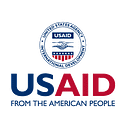Logistics Management Tool Brings New Strength to Vietnam’s Fight Against TB
e-LMIS system ensures a reliable drug supply
An estimated 170,000 people contract TB each year in Vietnam. In the past, TB patients received free TB drugs funded by the national budget and international donors.
But last year, for the first time ever, a TB patient received first-line medication under Vietnam’s social health insurance (SHI) program. It was a major milestone in the government’s effort to transition TB funding to the SHI scheme — and thereby ensure sustainable financing for TB services and uninterrupted treatment for people with active TB infections.
Changes in the way the country manages the supply of TB drugs under the SHI system are playing a key role. In March 2022, Vietnam’s National Tuberculosis Program began using a new, electronic logistics management information system (e-LMIS) developed with support from the USAID Local Health System Sustainability Project (LHSS).
Through e-LMIS, health facilities across Vietnam can input their estimated drug demand for the upcoming procurement cycle. The e-LMIS system automatically aggregates these data to inform the National TB Program’s centralized drug procurement process, which occurs every two years. TB drug suppliers also have access to e-LMIS, helping them monitor upcoming supply and shipping needs in real time.
The e-LMIS system also helps prevent stockouts by allowing health facilities to input data on drug use and remaining stock so that the NTP can anticipate any imminent shortages and reallocate stock across facilities, as needed.
Thuy Nguyen, who heads the pharmacy department at the National Lung Hospital, described how e-LMIS is easing her department’s work. “If e-LMIS were not in place, we would have to use an Excel spreadsheet to aggregate data sent by health facilities and provincial TB programs and, at the same time, compare the data with those in the hard copies sent along with the Excel ones. E-LMIS really helps us solve a huge workload in a shorter time with less human labor and reduced errors.”
In April 2023, LHSS partnered with the Vietnam Ministry of Health and Vietnam Social Security to grant e-LMIS accounts to the National TB Program, 63 provincial TB programs, TB treatment facilities, and TB drug suppliers.
Next, LHSS and other USAID projects conducted in-person and online training for some 2,000 health staff from 955 health facilities and TB programs across 63 provinces on TB drug quantification — the process of estimating drug demand — to inform the 2024–2025 SHI procurement cycle. The courses focused on using the new e-LMIS functions for drug quantification, reallocation, usage management, and reporting.
“The training courses created forums for health facilities to share their work and challenges to integrate into the SHI scheme and supply SHI TB drugs to patients. Actual situations offered lessons learned for the others,” said Thuy.
Since the training, all TB treatment facilities across Vietnam have been using e-LMIS to estimate their drug needs for the upcoming 2024–2025 procurement cycle. Meanwhile, said Thuy, the National TB Program is in the process of aggregating the national drug demands. The national program is also collaborating with LHSS to help health facilities address any issues that arise as they use the new e-LMIS system.
“We feel confident with the support of USAID’s LHSS Project,” Thuy said.
